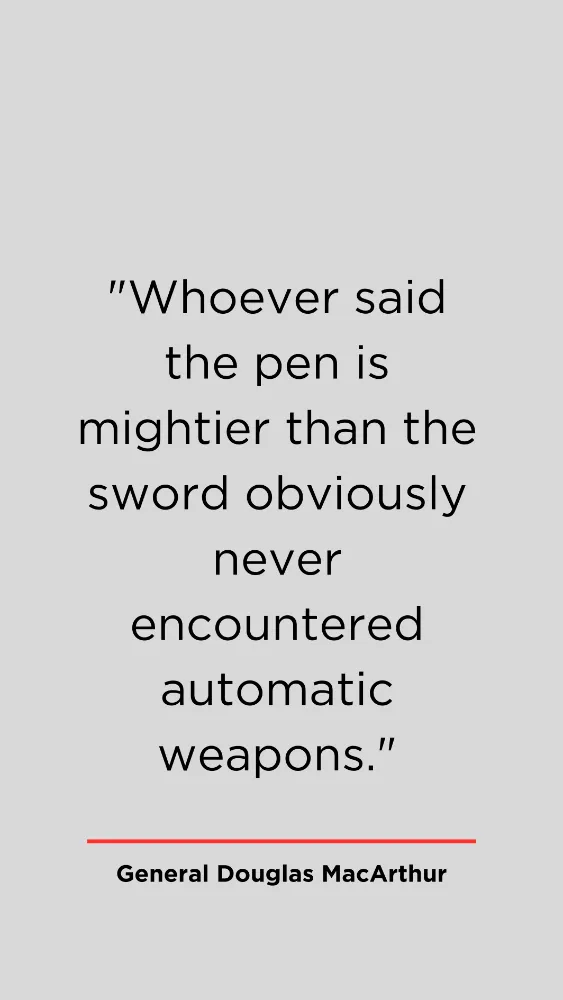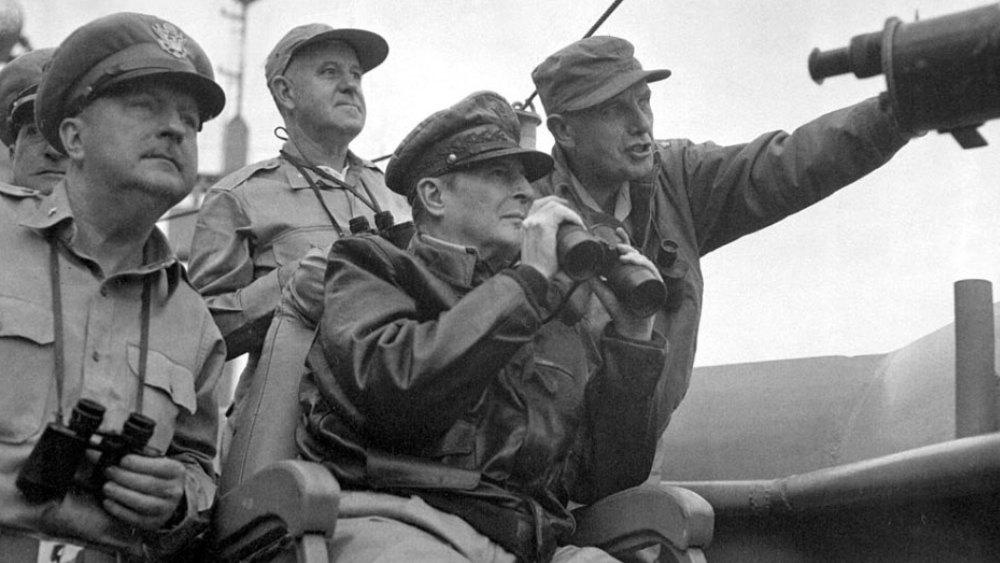Few military leaders in history have left as significant a mark on the world as General Douglas MacArthur. A brilliant strategist, a fearless commander, and a man of immense personal charisma, MacArthur’s leadership shaped the outcomes of some of the most critical conflicts of the 20th century. As Supreme Commander of Allied Forces in the Pacific during World War II and later as the leader of United Nations forces during the Korean War, his impact on global military strategy and geopolitical developments remains undeniable.
Who was General Douglas MacArthur?
Douglas MacArthur was born on January 26, 1880, into a military family. His father, Arthur MacArthur Jr., was a Civil War hero who later served as the military governor of the Philippines. This upbringing instilled in young Douglas a deep sense of duty and an understanding of military life.
MacArthur attended the United States Military Academy at West Point, graduating at the top of his class in 1903. He quickly rose through the ranks, serving with distinction in World War I as part of the American Expeditionary Forces in France. His leadership in battle earned him numerous decorations and established his reputation as a fearless and tactical military mind.
Supreme Commander of Allied Forces in the Pacific
MacArthur’s defining role came during World War II when he was appointed Supreme Commander of Allied Forces in the Southwest Pacific. Following Japan’s invasion of the Philippines in 1941, MacArthur led a desperate defense, but was eventually forced to retreat to Australia. Before leaving, he influentially vowed, “I shall return.” This promise became a symbol of hope for the Filipino people and the Allied war effort.
The Island-Hopping Campaign
MacArthur orchestrated a highly effective island-hopping strategy that allowed Allied forces to bypass heavily fortified Japanese positions and strike at more vulnerable targets. This approach not only minimized Allied casualties but also accelerated the campaign to retake the Philippines and push toward Japan.
In October 1944, MacArthur fulfilled his promise by wading ashore at Leyte Gulf, declaring, “People of the Philippines, I have returned!” The subsequent Battle of Leyte Gulf was one of the largest naval battles in history, decisively crippling the Japanese fleet and ensuring an Allied victory in the Pacific.

The Occupation of Japan
Following Japan’s surrender in 1945, MacArthur was appointed Supreme Commander for the Allied Powers (SCAP) and tasked with overseeing the occupation of Japan. His leadership in post-war Japan was one of his most remarkable achievements. Instead of imposing harsh punitive measures, MacArthur focused on rebuilding and democratizing the country.
Rebuilding a Nation
MacArthur played a crucial role in drafting Japan’s new constitution, which included provisions for democratic governance, women’s rights, and pacifism. He also spearheaded economic reforms, land redistribution, and educational improvements, setting the foundation for Japan’s transformation into a modern, peaceful nation.
The occupation lasted until 1952, and MacArthur’s efforts ensured that Japan emerged as a stable and prosperous ally of the United States. His approach demonstrated his ability not only as a wartime commander but also as a statesman and visionary leader.
The Korean War and Controversial Dismissal
With the outbreak of the Korean War in 1950, MacArthur was once again called upon to lead. As Supreme Commander of United Nations forces, he orchestrated the daring amphibious landing at Inchon, a maneuver that turned the tide of the war and forced North Korean troops into retreat.
However, MacArthur’s aggressive strategy and outspoken criticism of U.S. policy led to a historic confrontation with President Harry Truman. MacArthur advocated for expanding the war into China, a move that Truman feared would lead to a larger global conflict. In April 1951, Truman made the controversial decision to relieve MacArthur of his command, sparking public outrage and heated political debate in the United States.
Legacy and Impact
Despite his dismissal, MacArthur remained a revered figure. He returned to the U.S. to a hero’s welcome and delivered his influential farewell address to Congress, in which he stated, “Old soldiers never die; they just fade away.”
MacArthur’s military genius and his leadership in both war and peace were extraordinary. His unyielding determination left a lasting legacy. His strategies in the Pacific campaign influenced modern military doctrine, and his role in reshaping Japan laid the groundwork for one of the most successful post-war recoveries in history.
Conclusion
General Douglas MacArthur was a leader who embodied courage, intelligence, and unwavering commitment to duty. Whether commanding forces on the battlefield or overseeing the reconstruction of a defeated nation, he demonstrated unparalleled leadership and foresight. While his career was not without controversy, his impact on the course of world history is undeniable. To this day, MacArthur remains one of the most celebrated and studied military figures, a symbol of resilience and determination in the face of immense challenges.










